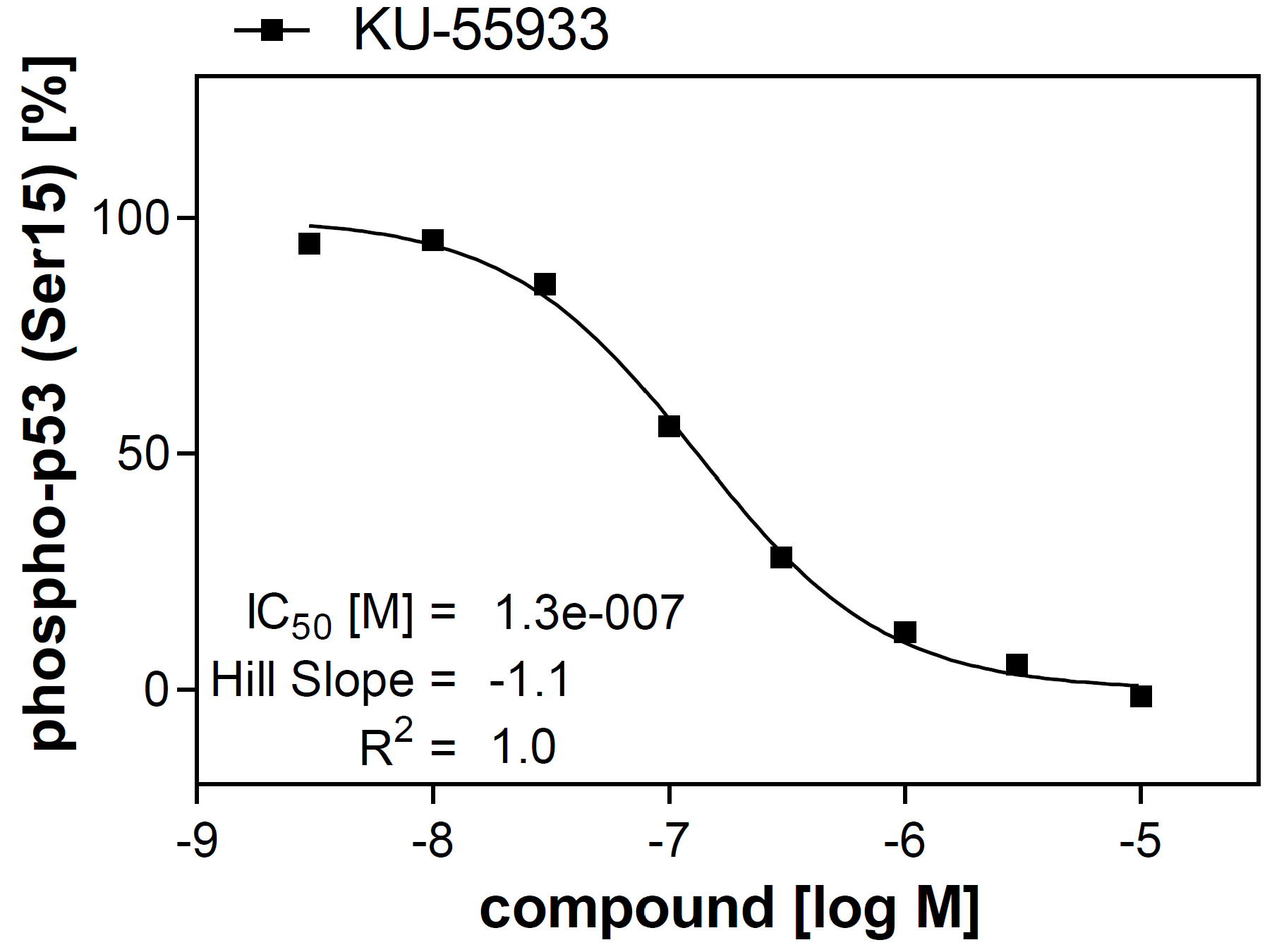ATM Cellular Phosphorylation Assay (intracellular kinase activity assay) for compound screening and profiling in intact cells
ATM (Ataxia Telangiectasia Mutated) is a serine/threonine-protein kinase and belongs to a family of phosphoinositide 3-kinase (PI3K)-related kinases involved in cell cycle control and DNA repair. Together with DNA-dependent protein kinase (DNA-PK) and ATM- and Rad3-related (ATR) the kinase ATM is recruited to sites of DNA double-strand breaks (DSB) via NBS1. Upon activation ATM phosphorylates downstream targets such as CHK2, MDM2 or p53. ATM phosphorylates p53 at multiple sites including Ser15, which results in p53 protein stabilization and activation.
Mutation of ATM was observed in the rare human autosomal recessive disorder ataxia-telangiectasia. Patient cells show hypersensitivity to ionizing radiation, chromosomal instability and failure to arrest the cell cycle after the induction of DNA double-strand breaks. Inhibition of ATM was shown to sensitize cells to the cytotoxic effects of ionizing radiation and to DNA double-strand break inducing chemotherapeutic agents such as etoposide or doxorubicin.
ATM (HGNC: 795)
Ataxia Telangiectasia Mutated, TEL1, TELO1, ATA, ATDC, ATC, ATD
U2OS
Endogenous
In the cellular ATM phosphorylation assay the human osteosarcoma cell line U2OS is used. Stimulation of these cells with hydrogen peroxide (H2O2) results in reactive oxygen species (ROS) induced DNA damage and in turn ATM kinase activation. Inhibition of ATM prevents phosphorylation of its downstream target p53 at serin 15.
Quantification of p53-Ser15 phosphorylation is assessed via sandwich-ELISA using a p53 specific capture antibody and a phospho-p53-Ser15 specific detection antibody. The assay is validated based on known inhibitors of ATM activity (see Fig. 1)
Phosphorylation at residue Ser15 of p53 as a readout of intracellular ATM kinase activity via sandwich-ELISA.
Freiburg, Germany
More information can be found on our website Cellular Phosphorylation Assay Services.
Reference compound IC50 for ATM

The well-described inhibitor KU-55933 potently inhibits ATM activity in the cellular phosphorylation assay. UK-55933 was included in the validation process and the cellular ATM assay generated highly reproducible IC50 values. The graph shows representative results.